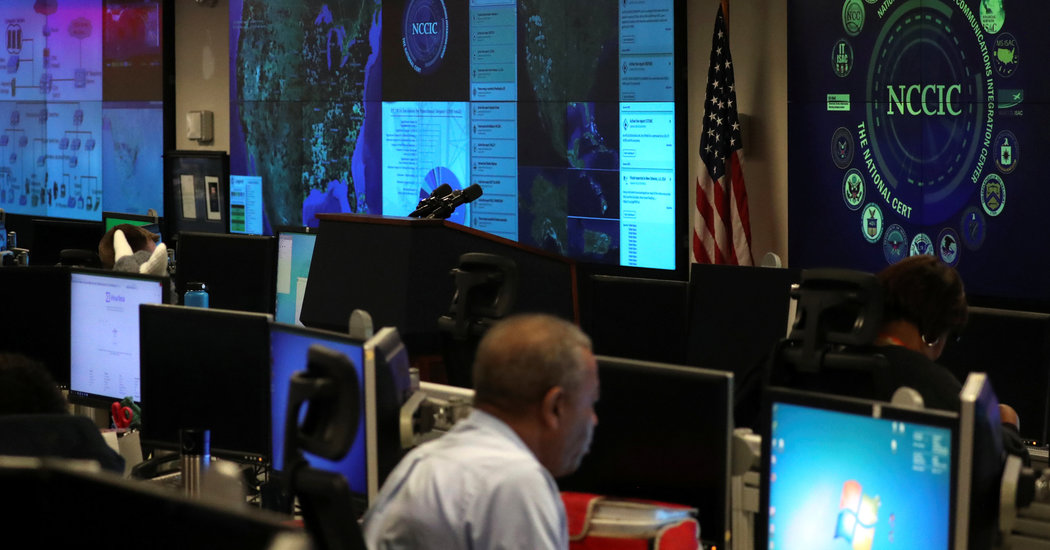Opinion | 4 Things That Keep the N.S.A. Up at Night
The N.S.A. Sees Big Tech as Both a Rival and … uh … a Partner
It’s not every day you see an N.S.A. official suggest that Big Tech might be as powerful as the surveillance state. And yet (emphasis mine):
First, the government no longer possesses the lead in complex technology, at least in many areas relevant to national security. Arguably, the most powerful computing and sophisticated algorithm development now occurs not in the Pentagon or the N.S.A. but in university research labs and in the Googles and Amazons of the commercial world. (To be sure, the government still maintains its superiority in important areas ranging from nuclear energy to cryptography.)
Of course, it makes sense that the N.S.A. would want to both publicly downplay its own capabilities and also flatter companies it would like to work with to increase its surveillance and tradecraft capabilities (who remembers PRISM?). Still, the acknowledgment that the bulk of the tech talent and sophistication is coming from Big Tech underscores the power of these companies. It’s also a bit ominous, given that in the past week Google and Facebook have become the subjects of big antitrust investigations.
And it’s not just Facebook, Google and Amazon. Gerstell’s whole argument is actually a pretty excellent and damning explanation of just how good the surveillance economy is at surveilling:
“The private sector will have many more times the quantity of data about individuals and commercial activity than governments could ever obtain. The larger antivirus vendors, with their sensors connected to their global corporate clients, already know more at any given moment about the state of networks around the world than does any government agency. Businesses in the services, retailing, industrial and other sectors will have more global sensors and applications detecting cybertraffic, collecting behavioral patterns, amassing personal data and so on, than even the most surveillance-oriented nation could ever hope to have.
And so, Gerstell argues that the private sector may have to fundamentally rethink how it interacts with the government.
National security agencies will need to defuse that frustration and find an effective path for collaboration with the private sector to mitigate cyberthreats. The only practical solution is for the private sector to assume a greater burden in this area, but with the active support of the national security agencies.
Again, it’s hard to even imagine what this would look like. Or how deeply concerning such collaboration might be for the privacy of American citizens. Equally concerning, Gerstell hints at the idea that perhaps the very legal definition of privacy between citizens and the government is evolving. Granted, both privacy advocates and data-hungry tech companies have suggested these definitions have grown complicated and fuzzy, but it’s jarring to hear the same admission from the N.S.A.:
Our notions of privacy have been rooted in the Fourth Amendment’s delineation of the federal government’s powers vis-à-vis the individual citizen. But what do our notions of privacy mean anymore when Amazon, Google, Apple, Microsoft, Facebook and so on already know so much about you? We now see increasing pressure in Congress to regulate in this area. To be sure, this article is not advocating any particular approach (much less suggesting greater surveillance powers), but it is hard to escape the conclusion that we will need to recalibrate the balance in this area of data privacy between the government and the private sector.
[If you’re online — and, well, you are — chances are someone is using your information. We’ll tell you what you can do about it. Sign up for our limited-run newsletter.]
Oh, About Democracy …
Gerstell’s final point is that technology, combined with our increasingly cluttered information ecosystem, may pose a fundamental threat to democracy as well as global alliances that will be necessary to ward off all the nightmares described above.
We all recognize this decentralizing and delegitimizing force, and there is no need to elaborate on it here. Worth appreciating in this context, however, is that governmental agencies with a national security mission are going to find it vastly more difficult to maintain the necessary trust, respect and support of a democratic populace in this environment — jeopardizing not only their ability to obtain resources from society but also in the end their very mission.
This last point is rather obvious, but it gets at something important: that the erosion of trust and rapidly spread disinformation muddying the waters will make all the other serious issues raised by Gerstell that much harder to combat. Whether you take his alarm-ringing with a grain of salt or are terrified by it, combating the future’s problems will require us to have, at the very least, a shared reality. And given the way things are trending (“A world in which effective deception in almost every venue and media outlet is possible,” he writes), that feels like a big ask.
Like other media companies, The Times collects data on its visitors when they read stories like this one. For more detail please see our privacy policy and our publisher's description of The Times's practices and continued steps to increase transparency and protections.
Follow @privacyproject on Twitter and The New York Times Opinion Section on Facebook and Instagram.








Gloss